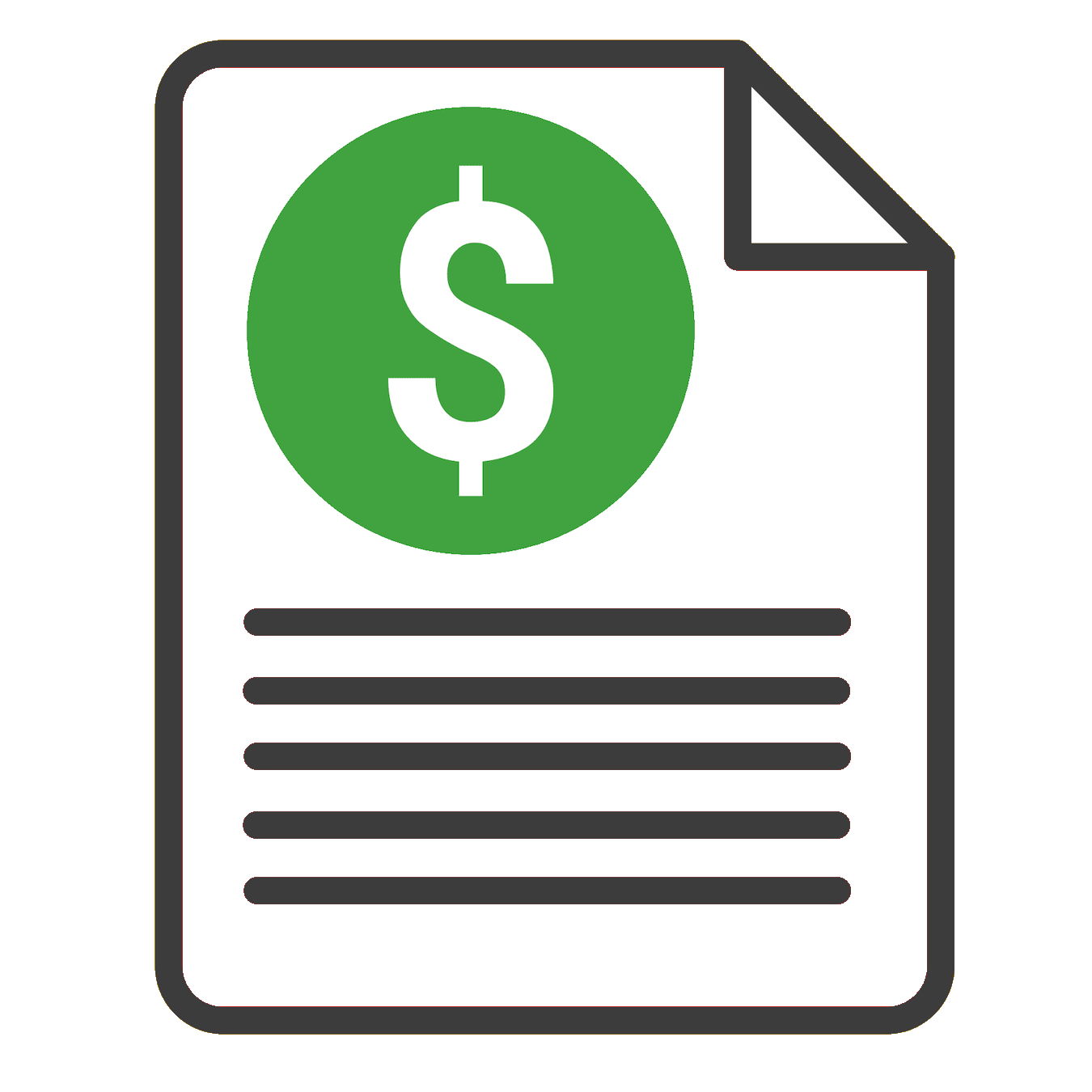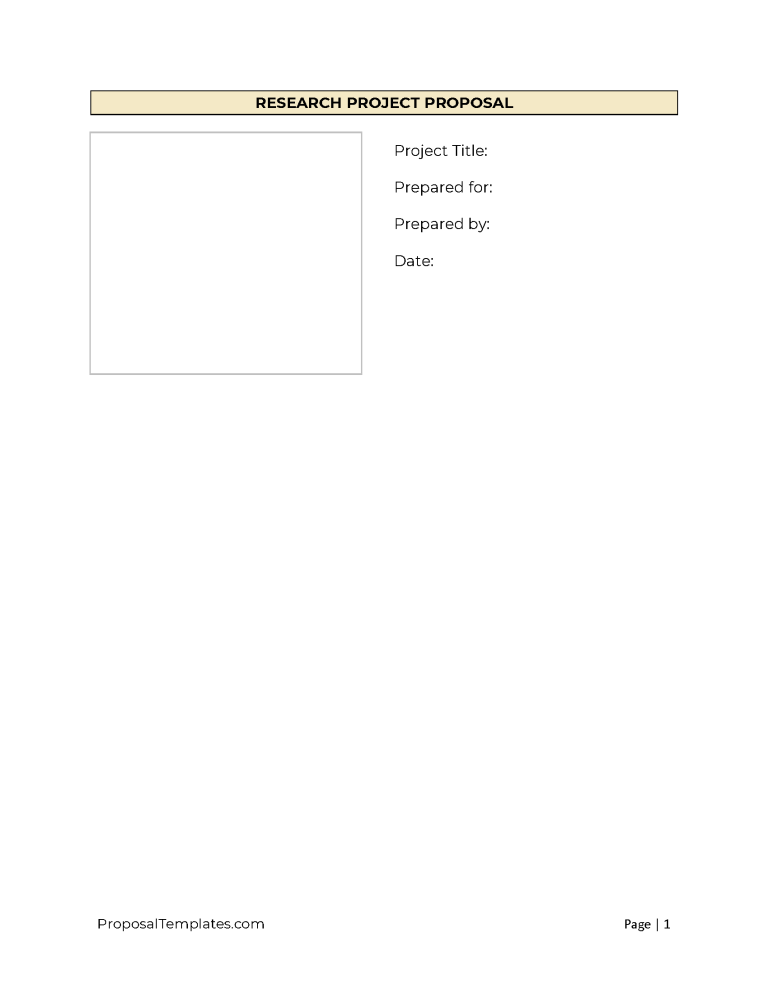Research project proposals gather the methodology, budget, timeline, and questions a project addresses, as well as its expected outcomes or impacts. Generally, this document must justify the proposed research to relevant stakeholders, ethical review boards, and (when appropriate) funding entities.
Types of Research Project Proposals (15)
- Applied Research Project – A research proposal that seeks grant support in research projects with a specific goal (i.e., a statistical study).
- Basic Research Project – A research proposal written to appeal to grantors for project support in investigating theoretical concepts or to increase knowledge in a specific field generally.
- Clinical Research Project – This proposal requests funding for studies specifically on or with human subjects, such as epidemiological studies or pharmaceutical clinic trials.
- Community-Based Research Project – Proposals promoting projects either for or by a community to grantors while requesting support.
- Cross-Sectional Research Project – A proposal appealing to grantors for support in population studies, especially during periods of change.
- Developmental Research Project – Proposals used to fund advancements through grant support, especially within a particular field’s methodology.
- Education Research Project – A proposal requesting grant funding for research projects studying educational systems (i.e., curriculum development).
- Experimental Research Project – This type of proposal is strictly to request grant funding for projects that will test a hypothesis therefore used to support controlled experiments.
- Exploratory Research Project – A proposal seeking grants to specifically examine a topic that has not yet been extensively explored.
- Interdisciplinary Research Project – Proposals that appeal to grantors to support research projects requiring different fields of study (i.e., biochemistry).
- Local Marketing Project – Proposals that promote a marketing consultant’s experience in creating search visibility and community engagement because the clients require their local presence to be established or improved
- Longitudinal Research Project – A research proposal requesting grant support for an ongoing study for an extended period of time.
- Observational Research Project – A proposal often used in the social sciences since it requests grants for systematic observation of a population.
- Policy Research Project – Proposals written to attract grants in the effectiveness of an organization’s policies while justifying the project’s methodologies.
- Technology Development Project – This proposal approaches grantors for assistance in technological research projects, thus presenting the impacts of innovation in science (i.e., engineering).
1. Research Project Cover Page
Open the grant research proposal with a cover or title page that captures the grantor’s attention while delivering essential information. For example, the proposal’s title should be easy to associate with the research project and in an attractive font.
- Title of the Proposal, Name of the Principal Investigator (PI)
- Institutional Affiliation, Contact Information
- Date, Funding Agency Information
- Proposal Submission Information
- Project Duration, Total Requested Funding Amount
2. Abstract
It is important to summarize this proposal for the reader’s benefit in a way that highlights the project’s methodology and objectives. Also, attempt to increase the grantor’s interest by presenting the research project’s expected outcomes and impacts.
Project Title, Objective, Research Questions
Methods, Significance, Background
Innovation/Novelty, Expected Results
Budget Overview, Duration
- Approach, Call To Action, Impacts
3. Research Project Proposal Table Of Contents
Increase the proposal’s readability by listing its main sections as well as their subheadings. Additionally, document the first page of each of these areas.
- Background, Abstract, Data Analysis Plan
- Rationale, Objectives, Research Questions
Hypotheses, Literature Review, References
- Organizational Structure, Ethical Consideration
- Research Design, Appendix Citations
4. Introduction
Explicitly state the research challenge behind this project, including the history of the problem. Once the significance of the project’s focus is explained, present the hypothesis being explored.
- Background, Context, Problem Statement
- Rationale, Objectives or Research Questions
- Hypotheses, Research, Scope
- Study Significance, Organizational Structure
Limitations, Risks, Call To Action
5. Literature Review
Present the current research on the project matter as well as the results of past investigations. Justify this proposal by identifying the knowledge gaps on the subject and the anticipated impact of the research.
- Gaps in Knowledge, Establishing Theoretical Framework
- Reviewing Methodologies, Method Evaluation
- Summaries, Current Study Relevance
Synthesis of Findings, Key Findings
- Adaptations, Citing Sources
6. Research Objectives And Hypthesis
Explore the research project’s objectives so that its milestone goals are spelled out. Furthermore, declare the hypothesis behind the research project and show its alignment with the goals.
Sampling Technique, Data Collection Methods
Analysis Plan, Qualitative Analysis, Hypotheses
Research Design Overview, Control Variables
- Ethical Considerations, Human Subjects, Consent
Pilot Study, Purpose, Adjustments, Timeline, Budget
7. Research Design And Methods
Lay out the premise, structure, timeline, and components defining the research project’s design, specifically explaining the techniques and procedures involved. Back up the analysis procedures with supporting factors such as the data collection and statistical methods used.
- Research Design, Participants, Sample, Variables
Data Collection Methods, Instruments, Tools, Procedure
- Data Analysis Plan, Ethical Considerations, Limitations
Validity, Reliability, Sample Size, Generalizability
Participant Consent, Confidentiality, Potential Risks
8. Significance And Innovation
Stimulate further interest from the grantor by explicitly promoting the potential impacts of the study. Whenever possible, show how the research project’s methods or implications could be considered ground-breaking or innovative.
- Broader Impact, Societal Impacts, Grand Challenges
Innovation, Unique Contributions, Implications
Real-world Applications, Potential Solutions
Theoretical Contributions, Knowledge Gap
Interdisciplinary Nature, Cross-Disciplinary Contribution
9. Research Project Timeline
Present a definitive timeline of the research project’s preparation, start, milestones, and conclusion, as well as post-study events. Additionally, present any dependencies or risks to the timeline with their contingency plans, especially those with alternate calendars.
Data Analysis Period, Writing Period, Sequential Order
- Data Collection and Analysis, Data Collection Period
- Task Dependencies, Critical Path, Project Phases
Key Milestones, Completion Dates, Major Stages
Measurement Timeline, Reporting, Data Sources
10. Budget
Dispense the research project’s costs, expenses, and (if applicable) revenue while making special mention of payment deadlines and funding rounds. Expand on areas where grant funding would have a significant effect accordingly.
Personnel Costs, Research Team Salaries
Equipment, Supplies, Ethical Review Fees
Informed Consent Materials, Ethical Considerations
Administrative Support, Budget Justification
Contingency Funds, Miscellaneous Expenses
11. Expected Results
Deliver a detailed account of the research project’s projected outcome, such as the immediate contributions to relevant fields. Additionally, list the potential risks to the research objectives being reached with the precautions or contingencies to deal with them.
- Quantitative Results, Statistical Findings, Applications
- Recommendations, Addressing Research Questions
Objective Alignment, Comparisons, Hypothesis Testing
Knowledge, Limitations, Caveats, Thematic Analysis
Conceptual Framework, Practical Implications, Visual Aids
12. Dissemination Plan
Fully explain how the project’s results will be published once it has concluded. For example, list conferences the research organization would attend to present results or publications where they would submit their results.
- Target Audience, Stakeholders, Secondary Audiences
- Website, Workshops, Government Policies
- Partnerships, Academic Publications, Policy Briefs
- Media Outreach, Educational Outreach, Media Interviews
- Journals, Educational Institutions, Conferences
13. Ethical Considerations
It is important to cover the project’s ethical concerns since research may be subject to academic oversight and other controls. Thus, assure the grantor that the project adheres to all applicable ethical standards in its nature, methodology, and goals.
Data Handling, Ethical Standards Compliance
Ongoing Monitoring, Debriefing
Review Board Approval, Voluntary Participation
Risks, Benefits, Vulnerable Populations
Confidentiality, Anonymity, Informed Consent
14. References
Gather the reference sources for this project, such as previous experiments. Also, cite all references accordingly while providing as much information as possible on their source.
Citation Style, Formatting, Consistent Formatting
Types of Sources, Journal Articles, Conference Papers
- Accuracy, Completeness, Completeness, DOI, URL
- Book Chapters, Edited Volumes, Thesis/Dissertation
- Government Reports, Technical Documents
15. Appendices
This proposal must approach the research project grantor with supporting information and references thus, develop an appendix. Consolidate all such material in this section while citing them accordingly.
- Observation Logs, Recording Transcripts, Budget Sheets
- Technical Diagrams, Flowcharts, Raw Data Sets
- Coding Samples, Additional Supporting Data
- Coding Schemes, Copyrighted Material Use Consent
- Curriculum Vitae (CV), Letters of Support, Contracts

